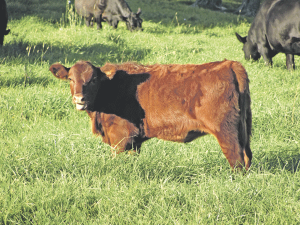Sustainable agriculture for the future
by Deborah Jeanne Sergeant
It’s not just a trendy phrase among those concerned about the environment. “Sustainable agriculture” also represents a good business model. Dr. Jude Capper, a livestock sustainability consultant in the UK, recently presented a webinar on the topic for AMTS as part of the organization’s “The Nutritionist 2020” series. (more…)

 by Troy Bishopp
by Troy Bishopp by Courtney Llewellyn
by Courtney Llewellyn by Katie Navarra
by Katie Navarra by Sally Colby
by Sally Colby Burger King’s gassy cow video agitates farmers
Burger King’s gassy cow video agitates farmers by Sally Colby
by Sally Colby by Evelyn Leubner
by Evelyn Leubner